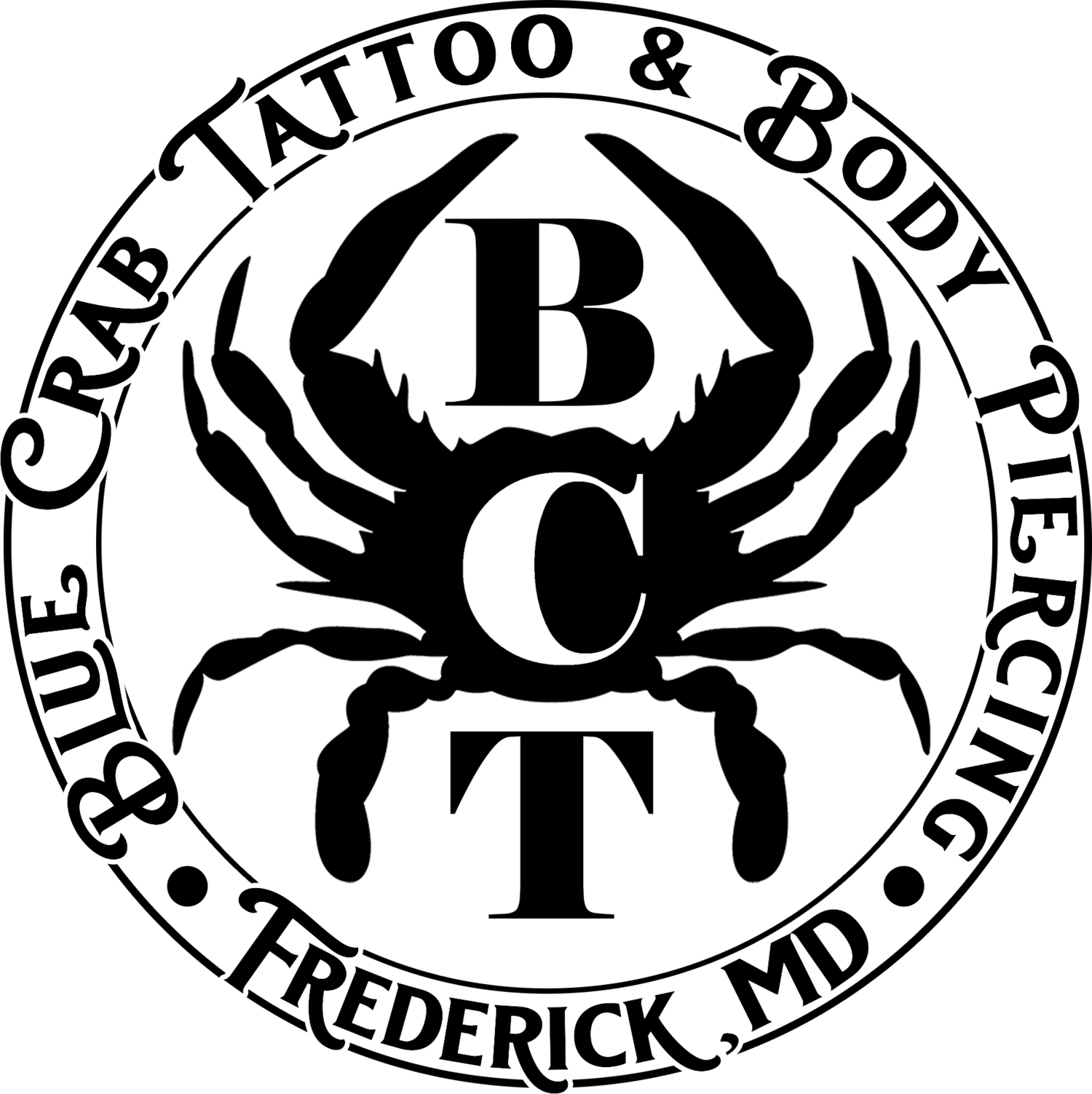Piercing Aftercare
Healing times vary depending on the type of piercing you have. Please clarify with your piercer what your healing time is.
Clean hands. Always wash your hands before touching your piercing and only touch your piercing while you are cleaning it. Once a day in the shower rinse the piercing with warm water, do this last after the rest of your shower routine is finished. This will ensure that all hair and body care products are rinsed away from the area. Use a clean paper towel to dry the area thoroughly.
Twice a day use a packaged sterile saline in a spray can to spray the entry and exit points of the piercing. A quick spritz is all you need. Allow the saline to sit for 30-60 seconds to soften any crusts or scabs that may have built up. Then, spray non-woven gauze or lint free cotton round with saline and use it to clean the piercing site and jewelry.
For oral piercings:
Rinse with Biotene mouthwash in the morning and at bedtime. Whenever you are done eating and drinking anything that is not water, rinse with water. Avoid smoking if possible, and if you do smoke rinse thoroughly with water afterwards every time. Avoid using straws. Suction can delay your healing by pulling scabs away from the piercing site. Avoid foods that are spicy, salty, or sour. Avoid dairy products with live cultures such as yogurts and soft cheeses. Do not play with or chew on your jewelry for the life of the piercing. To clean the exterior of lip piercings follow standard piercing aftercare. If you have a tongue piercing be sure to gently brush the jewelry as you would a tooth to prevent tartar and plaque buildup.
What to avoid:
Avoid sleeping on your healing piercing. This can not only cause irritation but can cause the piercing to heal at an incorrect angle. Avoid moving jewelry in an unhealed piercing or picking away dried discharge with your fingers. Avoid cleaning with betadine, hibiclens, alcohol, hydrogen peroxide, dial or other soaps containing triclosan as these can damage cells. Also avoid ointments as they prevent necessary air circulation. Avoid bactine, pierced ear care solutions, and other products containing benzalkonium chloride (bzk) these can be irritating and are not intended for long term wound care. Avoid over cleaning, this can delay your healing and irritate your piercing. Avoid undue trauma to the area, such as friction, playing with the jewelry, vigorous cleaning, impacts, and long periods of pressure such as sleeping on it. These activities can cause the formation of unsightly and uncomfortable scar tissue, migration, prolonged healing, and other complications. Avoid submerging the piercing in unhygienic bodies of water such as bath tubs, lakes, pools, hot tubs, etc. Avoid all beauty and personal care products on or around the piercing including, but not limited to, cosmetics, lotions, and sprays, etc.
If you have any questions please do not hesitate to contact your piercer or the shop!
Hints & Tips
Unless there is a problem with the size, style, or material of the initial jewelry, leave it in place for the entire healing period. See your piercer to perform any jewelry change should it become necessary during healing. Contact your piercer if your jewelry must be removed (such as for a medical procedure). Leave jewelry in at all times, even old or well healed piercings can shrink and close after having been there for years. If removed, reinsertion can be difficult. If you have trouble, contact your piercer asap. With clean hands, be sure to regularly check threaded ends on your jewelry for tightness. If your jewelry is threadless, check to make sure the top is securely pushed into the post. If you are not sure of the type of jewelry you have, contact your piercer. Should you decide you no longer want the piercing, simply remove the jewelry, or have your piercer do so, and continue cleaning the piercing until the hole closes. A neck pillow can be used to sleep on the side of a healing piercing without putting pressure on the piercing.
